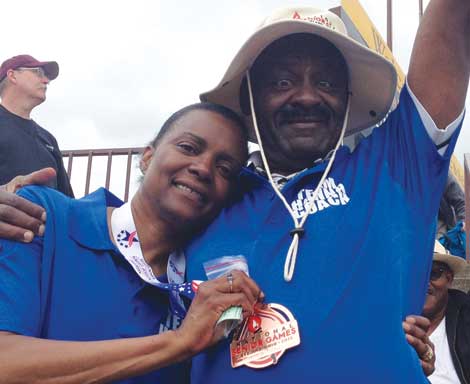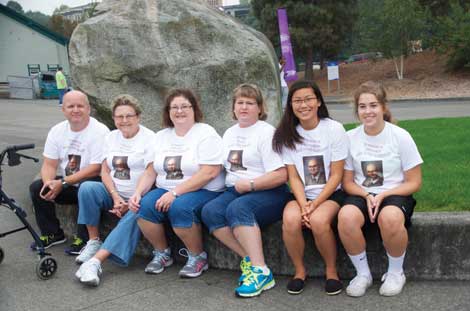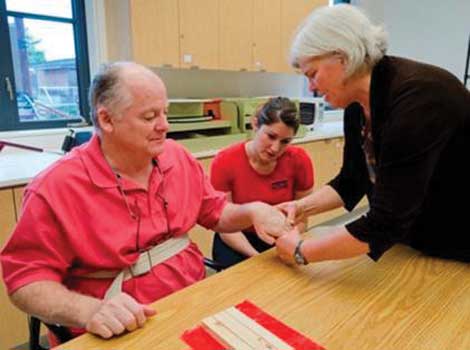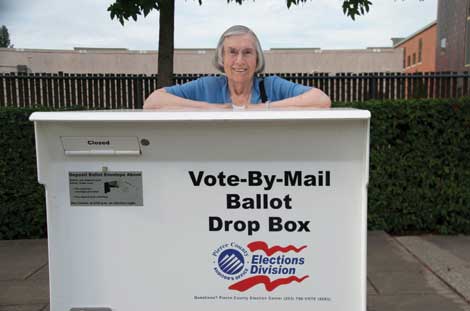She went from track novice to medal-winning sprinter
Madonna Hanna, who has a you-can-do-anything attitude, still surprised herself when she went from being a novice in track and field to part of a medal-winning relay team in this year’s national Senior Games.
Hanna, 59, is a Milken Educator and motivational speaker with more than 30 years of experience as a teacher and 25 years as a program creator, coordinator and fund-raiser. She has earned national recognition as a career and technical educator, plunged into community service and tackled speaking engagements on topics such as bullying, swearing and group behavior issues.
But she had no reason to think she might be a national-caliber senior sprinter. The Ruston resident had no experience in track and field, and her only previous foray in sports was when she took up tennis and bowling in her 20s before she decided “on a whim” in 2011 to enter the 100-meter and 50-meter dashes in the state Senior Games.
“I was just looking for something to do in the summer. I was teaching at the time,” Hanna said.
Her husband Steven, a former track competitor who also coached the sport at the high school level, became her personal trainer and coach. He soon had her running stadium steps and doing situps to get in shape for races that she. figured just required her to “run in a straight line as fast as I can.”
That worked. In the 2012 state games, her third-place time in the 200-meter race qualified her for the national meet. She also was invited to run in the 4×100 relay at the nationals.
Fast-forward to last summer and the national games July 19-Aug. 31 in Cleveland, Ohio. Having never run in a relay previously, Hanna found herself trying to pick up the finer points of the event in literally minutes. After finishing ninth in the 100 in 16.8 seconds, the fastest she’d ever run it, Hanna had 15 minutes to learn 4×100 techniques, including which hand to hold the baton with and how and when to transfer it to the next runner.
Hoping she was a quick study, Hanna gave it a try. After sprinting through the first leg of the relay, Hanna’s handoff to the next runner was perfect, and their team went on to finish third and earn the bronze medal.
“I couldn’t believe it I did it. The whole thing was so exciting,” Hanna said. .
The Senior Games began in 1985 in St. Louis, Mo., the brainchild of seven men and women who formed what orginally was known as the National Senior Olympics Organization. The games, held every two years with as many as 100 participants, promote healthy lifestyles for adults through education, fitness and sport.
For Hanna, who taught fashion marketing and career opportunities at Bremerton High School and Bates Technical College and earned a statewide Milken Educator award before changing professions, the games are a real-life example of what awaits people who step (or is that run?) out of their comfort zone and try something completely new.
“I’m so glad I decided to do this. I never would have known I could do it if I hadn’t tried,” she said.



